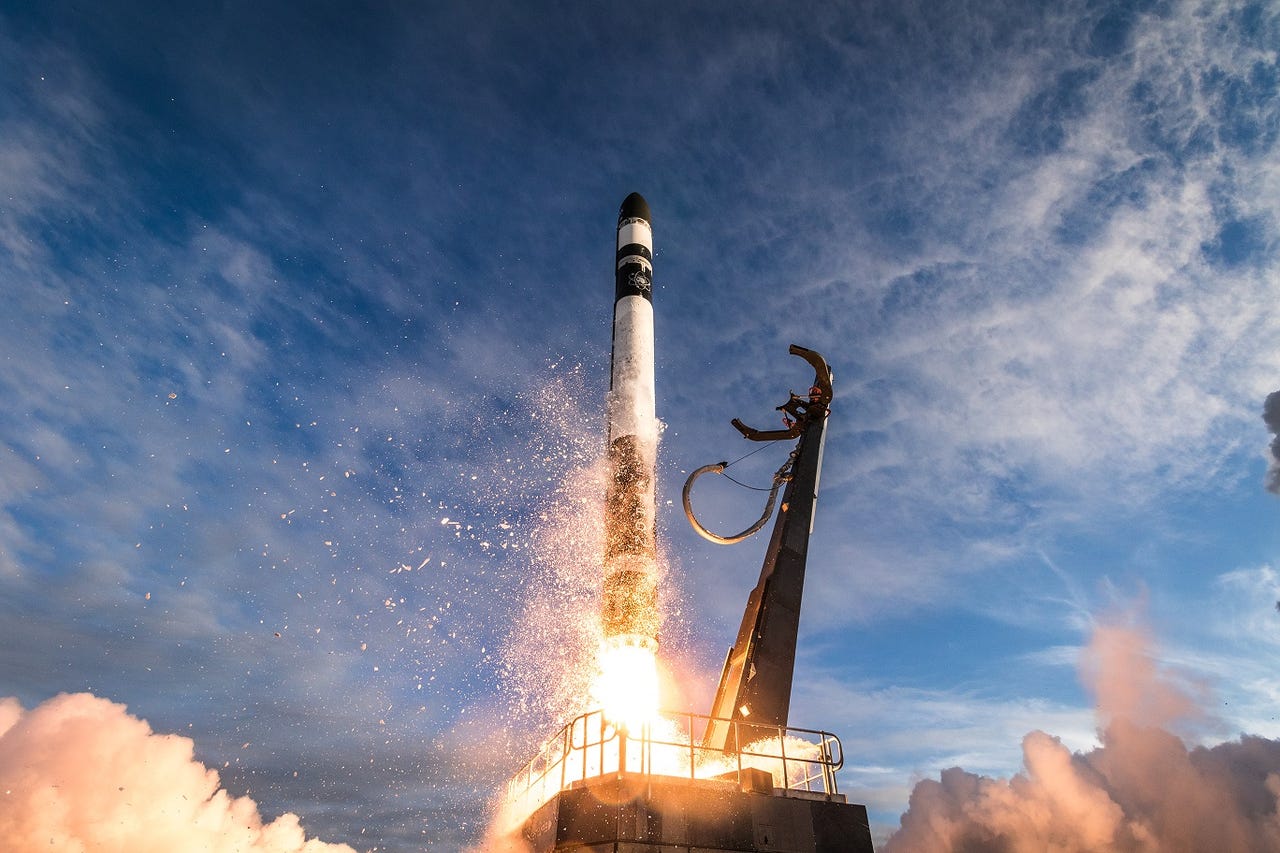Rocket Lab receives NASA certification, touts new missions, and buys Sinclair Interplanetary


New Zealand's Rocket Lab has received Category 1 certification from National Aeronautics and Space Administration (NASA) for its Electron launch vehicle, following the successful launch of the NASA ELaNa-19 mission in December 2018.
The launch saw 13 NASA CubeSats delivered to orbit by Rocket Lab's Electron launch vehicle. It was Rocket Lab's fourth successful Electron launch.
Rocket Lab said it marked a significant milestone for NASA's Venture Class Launch Services (VCLS) initiative as it was the first time NASA CubeSats received a dedicated ride to orbit on a commercial launch vehicle.
An assessment of Rocket Lab's Electron production facilities and processes was also carried out in 2019, which Rocket Lab said culminated in the Category 1 certification being awarded.
NASA is now considering Rocket Lab for Category 2 Certification, which enables a launch provider to fly higher value payloads.
Category 2 requires a vehicle to have performed at least six consecutive successful missions of the same configuration. As of February 2020, Rocket Lab said its Electron vehicle has conducted 10 consecutive successful orbital missions, deploying payloads for commercial and government customers including the Defense Advanced Research Projects Agency, the US Air Force, and the National Reconnaissance Office (NRO).
Earlier this month, Rocket Lab announced that its next mission will deploy payloads for NASA, NRO, and the University of New South Wales Canberra Space.
The launch will take place from Rocket Lab Launch Complex 1 on New Zealand's Māhia Peninsula, with a 14-day launch window scheduled to commence from 27 March 2020 local time.
"It's a privilege to have NASA and the NRO launch on Electron again, and we're excited to welcome the University of New South Wales onto our manifest for the first time, too," Rocket Lab founder and CEO Peter Beck said. "We created Electron to make getting to space easy for all, so it's gratifying to be meeting the needs of national security payloads and student research projects on the same mission."
Beck said the mission has been named "Don't Stop Me Now" in recognition of Rocket Lab board member and avid Queen fan Scott Smith, who recently passed away.
The mission will be Rocket Lab's 12th Electron launch since May 2017.
The announcement of the launch followed Rocket Lab inking a deal in early March to launch a dedicated mission for Capella Space, which is an aerospace and information services company providing on-demand Earth observation data.
The company said the pair will launch the first-ever synthetic aperture radar satellite that delivers commercial data into a mid-inclination orbit to optimise hotspot monitoring of key regions in the world.
It is pencilled in for launch mid-year.
In February, Rocket Lab was also selected by NASA as the launch provider for a small satellite mission to the same lunar orbit targeted for Gateway, an orbiting outpost that astronauts would visit before descending to the surface of the Moon in a landing system as part of NASA's Artemis program.
The Cislunar Autonomous Positioning System Technology Operations and Navigation Experiment (CAPSTONE) is expected to be the first spacecraft to operate in a near rectilinear halo orbit around the Moon.
"In this unique orbit, CAPSTONE will rotate together with the Moon as it orbits Earth and will pass as close as 1,000 miles and as far as 43,500 miles from the lunar surface," the company explained.
"CAPSTONE will demonstrate how to enter into and operate in this orbit as well as test a new navigation capability. This data will help to reduce navigation uncertainties ahead of future missions for Gateway, as NASA and international partners work to ensure astronauts have safe access to the Moon's surface."
Rocket Lab said after launch, CAPSTONE would take approximately three months to enter its target orbit and begin a six-month primary demonstration phase to understand operations in this orbit.
The mission is targeted for launch in early 2021.
Rocket Lab on Monday also reached an agreement to acquire Canadian satellite hardware provider Sinclair Interplanetary.
"The acquisition strengthens the satellite division of Rocket Lab, which produces the Photon spacecraft line, and will enable Sinclair to tap into Rocket Lab's resources, scale, manufacturing capability and innovative technology," Rocket Lab said of the acquisition.
"Sinclair products will be key features of Rocket Lab's in-house designed and built Photon satellite platforms, and Rocket Lab will bring additional resources to grow Sinclair's already strong merchant spacecraft components business."
Financial terms of the acquisition have not been disclosed.